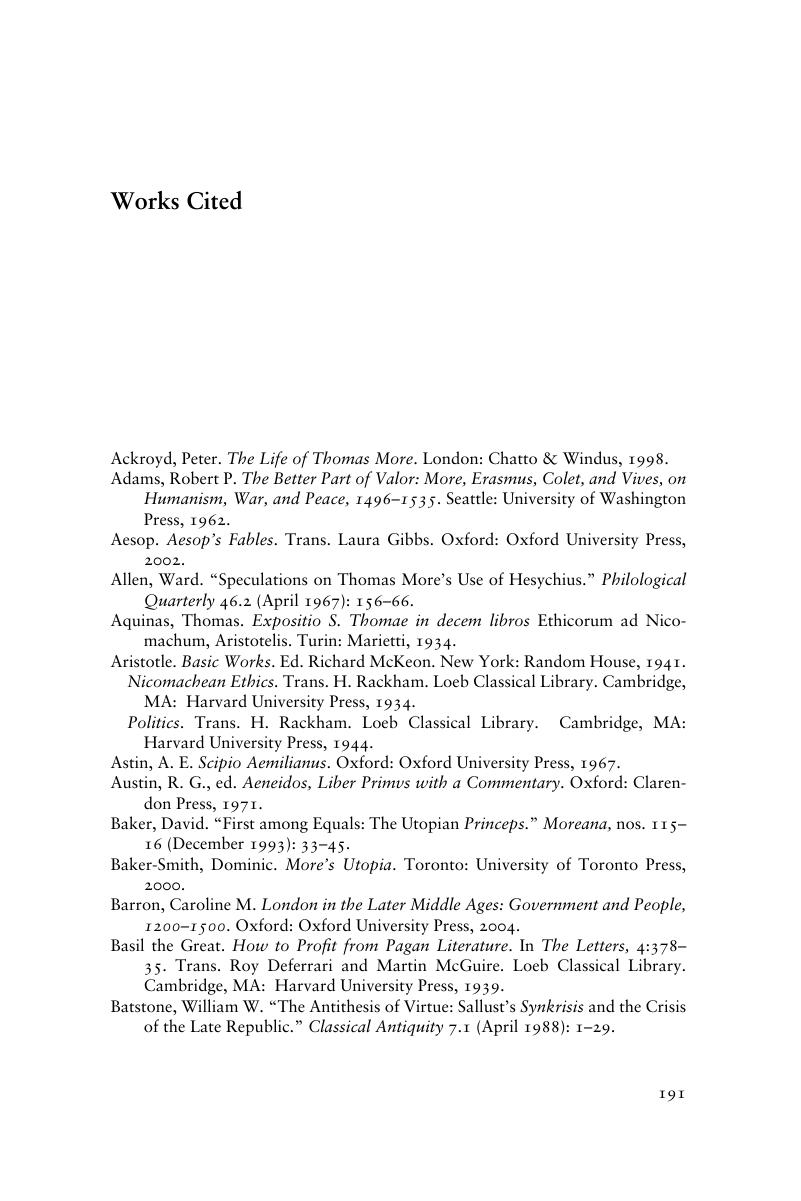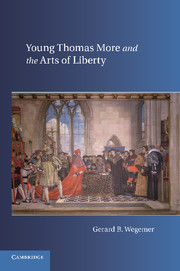Book contents
- Frontmatter
- Contents
- List of Illustrations
- Acknowledgments
- List of Abbreviations
- 1 Young Thomas More
- 2 Fashioning Peace and Prosperity
- 3 Cicero's and More's First Citizens
- 4 More's Earliest Views of Humanitas, Libertas, and Respublica, 1500–1506
- 5 More's Life of Pico della Mirandola (c. 1504–1507)
- 6 More's 1509 Coronation Ode
- 7 Political Poems of 1509–1516
- 8 Richard III
- 9 Utopia
- 10 The Un-Utopian Thomas More Family Portrait
- 11 The Arts of Liberty
- Works Cited
- Index
- References
Works Cited
Published online by Cambridge University Press: 25 October 2011
- Frontmatter
- Contents
- List of Illustrations
- Acknowledgments
- List of Abbreviations
- 1 Young Thomas More
- 2 Fashioning Peace and Prosperity
- 3 Cicero's and More's First Citizens
- 4 More's Earliest Views of Humanitas, Libertas, and Respublica, 1500–1506
- 5 More's Life of Pico della Mirandola (c. 1504–1507)
- 6 More's 1509 Coronation Ode
- 7 Political Poems of 1509–1516
- 8 Richard III
- 9 Utopia
- 10 The Un-Utopian Thomas More Family Portrait
- 11 The Arts of Liberty
- Works Cited
- Index
- References
Summary

- Type
- Chapter
- Information
- Young Thomas More and the Arts of Liberty , pp. 191 - 200Publisher: Cambridge University PressPrint publication year: 2011



